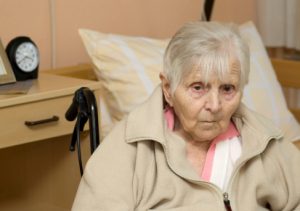Wrongful Death
 If a resident dies in a nursing home as the result of neglect from the staff, your family may be entitled to compensation. Wrongful death occurs frequently in nursing homes across the United States because it can occur from a variety of different ways. Patients can die from dehydration, malnutrition, abuse, severe sepsis, wrong medication and more. If a loved one has died in a nursing home as the result of negligence, feel free to contact us for your free consultation.
If a resident dies in a nursing home as the result of neglect from the staff, your family may be entitled to compensation. Wrongful death occurs frequently in nursing homes across the United States because it can occur from a variety of different ways. Patients can die from dehydration, malnutrition, abuse, severe sepsis, wrong medication and more. If a loved one has died in a nursing home as the result of negligence, feel free to contact us for your free consultation.
Bedsores
Bedsores are the most common type of nursing home abuse injury. Bedsores are also commonly known as pressure sores. They can happen very easily and it’s important for the nursing home staff to be well educated on how to treat those patients who may already have bed sores. These injuries are very serious and can even become life threatening if not treated properly. Bedsores are so common that currently 1 in 10 nursing home patients has a bedsore.
Types of Bedsores
There are two main types of bedsores: stageable and unstageable. Bedsores that are stageable are the type of routine sores which can be diagnosed by a medical professional. Unstagable are generally more difficult to see (under the surface of the skin) and can be very difficult for nurses and medical professionals to diagnose.
Malnutrition
Malnutrition is a condition that is caused by the lack of proper nutrients from food. Malnutrition can be the lacking of nutrients, the excess of certain nutrients, or un-proportional meals. Malnutrition is one of the leading causes of nursing home neglect. Many residents are unable to feed themselves and residents also have a difficult time chewing and swallowing different types of food. Therefore it is crucial that nursing home staffs are trained to feed their patients accordingly.
Dehydration
Dehydration means the removal of water. Patients are not given proper amounts of water on a daily basis. Dehyrdration occurs when someone does not ingest enough liquid for that day. One third of nursing home residents are unable to eat and drink on their own, it’s important that each nursing home staff is equipped to handle this.
Poor Hygiene
Poor hygiene is the result of poor care from nursing home staff. Staff members are supposed to make sure all conditions within the room, and the patient themselves are sanitary. Bedrooms and bathrooms in particular most be cleaned on a regular basis and meet specific sanitation guidelines. Patients should be on a formal cleaning schedule where they are bathed and washed down as well.
Sepsis
Sepsis infection occurs when certain chemicals that are released into the blood to fight an infection spark inflammation throughout the entire body. If septic shock occurs, and blood pressure continues to fall drastically, death may be possible.
Infections
Infections are very common injuries within nursing homes. Sometimes infections are preventable and are treated with proper care, but unfortunately many infections are overlooked or misdiagnosed by nursing home staff. Infections such as sepsis, can result in death if not treated properly. Staph infections are also very common in nursing homes.
Patients with Alzheimers
Alzeimer’s is a disease which is characterized by a loss of brain function which results in dementia. These patients within the nursing home generally need extra care because of their lack of memory. Nearly 75 percent of alzheimer’s patients will be submitted to a nursing home by the age of 80.
Diabetic Care
Diabetes is a disease where high blood glucose levels hinder the body’s ability to produce insulin. Diabetes is becoming more prevalent in the United States particularly in the aging population (65+). Patients in nursing homes with diabetes need extra care to ensure their health and safety.
